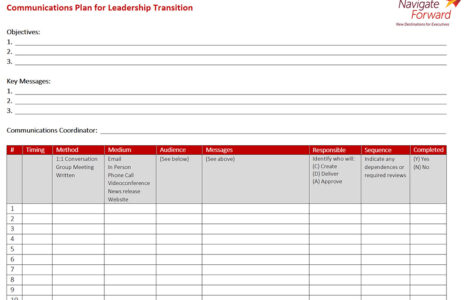As a senior leader, finding your next position can seem like a full-time job. It can be even more challenging if you’re in the market because of an unexpected layoff, or when you’re experiencing burnout, stress or uncertainty about your next move. Your actions, messages and attitude are critical to success.
In our work with corporate vice president and C-suite leaders, we see a number of common mistakes that prolong job searches unnecessarily and put even the most talented candidates at risk for missing opportunities.
Here’s how to recognize—and avoid—six common pitfalls that can hamper an executive job search.
Avoid These Common Pitfalls In Your Executive Job Search
1. Projecting negative emotions
A job search can generate a rollercoaster of emotions, especially if it stems from an unexpected layoff or separation. Particularly in the early days of transition, there can be a real sense of loss, anger and frustration.
Until you acknowledge and address these feelings, they will sabotage your job search. Take time to process your transition, talk to friends and family, even see a therapist when needed. Then, look forward. When asked, share a brief and truthful reason for leaving your last employer, then focus on what’s next.
2. Pausing without purpose
Time off to relax and decompress is a common reaction to job transition. But, just as often, that downtime lengthens your search and actually drains your energy. Instead, make sure your pause has purpose: taking a class, doing self-discovery exercises or working through negative emotions, for example. If you do take an extended sabbatical, use some of your free time for self-reflection about your future.
3. Missing the message
A strong executive job search requires a focused message. Until you can succinctly articulate who you are, what you do best and how you can add value for a potential employer, there’s a good chance you’re doing your job search more harm than good. Recruiters, hiring managers and networking connections don’t need a recap of your resume and don’t want to guess how to apply your skills; they do need a clear picture of your ideal next opportunity.
4. Unproductive networking
The majority of VP and C-suite roles come through people, not job postings. That makes active professional networking essential. To make the most of your meetings, target the right people for the type of role you’re seeking. Be specific about what you need and how your experience will help a new employer. Then, make sure those conversations are mutually beneficial. Be prepared to help others just as they are helping you. Have an objective for each meeting and use others’ time wisely.
5. Asking too much of recruiters
Many executive jobseekers place too much emphasis on executive search firms. Others misunderstand the role that executive recruiters play. While these connections are beneficial, it’s the recruiter’s job to find talent for their clients—not to find your next role. Do introduce yourself to recruiters in your field; don’t expect them to polish your resume, introduce you to hiring managers or advocate for your candidacy unless you match a specific client role they need to fill.
6. Neglecting LinkedIn
Having an active presence on the world’s largest professional network is essential for all executive jobseekers—even president, general manager and C-suite roles. It’s often the first impression you’ll make with recruiters, networking connections and others in your professional community. Make sure to update your profile and picture, respond quickly to connection requests and messages, and leverage the platform in your own search activities. (See our full list of LinkedIn tips for senior leaders for more ideas.)
How to Overcome Job Search Obstacles
One way to overcome these job search obstacles is by working with outside experts. Just as a personal trainer at the gym helps you achieve your fitness goals more easily, career consultants and outplacement professionals can help senior leaders navigate your job search and achieve your goals.
The Navigate Forward process begins with guided discovery that helps executives see how your skills—and passions—can translate going forward. We work one-on-one with each client until you land your next position. We also take an all-in-one approach that includes support and coaching for resume development, LinkedIn training, networking, interview preparation, salary negotiation and other essentials—all tailored to the needs of senior leaders.
Accelerate your executive job search. Since our inception in 2008, we’ve worked with more than 1,500 executives across a variety of industries. See how we recently helped a retail executive and biotech CEO—then contact us to discuss your specific needs.



